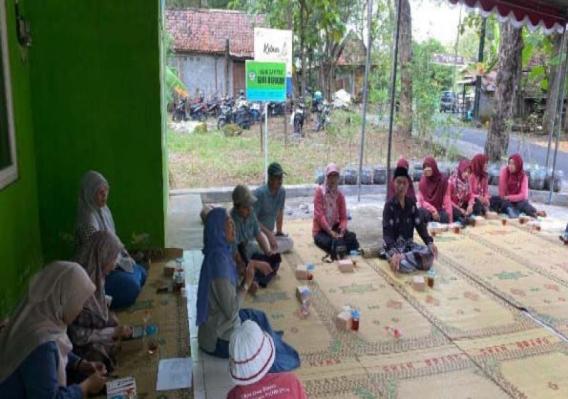UNY Collaborate to Educate the Residents of Girirejo: Promoting the Use of Medicinal Plants as Natural Antiseptics

UNY and UGM have entered into a strategic collaboration via a community‐service programme titled “Utilisation of Local Medicinal Plants as Natural Antiseptics.” The programme targets residents of the village of Desa Girirejo, Kecamatan Imogiri, Bantul, as a form of empowerment based on local potential and to raise awareness about environmental sanitation. The first activity was held on Saturday (28/6) and was prefaced by a field observation carried out by a joint team from the Department of Chemistry Education at UNY and the Department of Chemistry at UGM. The team includes Prof. Sri Handayani, M.Si., Dini Rohmawati, Ph.D., Dr. Irena Agustiningtyas, M.Sc., and postgraduate students of Chemistry Education from UNY. The primary focus of the activity was mapping the local residents’ knowledge about cleanliness and use of natural antiseptics.
“Initial observation is very important so that the education and training we design are precisely targeted and applicable,” explained Prof. Sri Handayani. “We want the community not only to know, but also to be able to make and use natural antiseptics independently.” This activity coincided with the relocation of the “Giri Berkah Waste Bank” (Bank Sampah Giri Berkah), which acts as the community’s environmental cleanliness‐activating hub in Girirejo. The event was attended by the village head (“Lurah Girirejo”), Dwi Yuli Purwanti, environmental cadre members from various sub-villages, and community figures.
The observation’s results showed strong potential for development of environment‐based programmes in this village. Infrastructure such as the waste bank and active participation of residents—especially the PKK (women’s community groups)—represent strong social capital. The upcoming training in making natural antiseptics is expected to reinforce this initiative. “This village already has commendable waste-management spirit. Natural antiseptics can become an important complement so that the process is hygienic and health-promoting,” added Prof. Sri Handayani. This activity will continue until the end of July 2025, with intensive training in the production of antiseptics from local plants. The hope is that this skill can become a rooted healthy lifestyle based on local wisdom and simultaneously a symbol of community self-reliance.






